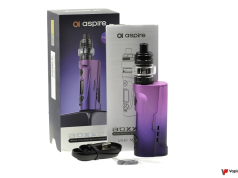Feb. 5th marked two significant events. First, was the acquittal of President Donald Trump from charges of corruption. Second, and for the importance of this piece, was a House hearing that took on leaders of the vaping industry’s most significant players.
House Democrats, the controlling majority in the lower chamber of Congress, have now long capitalized on the emotions and fears surrounding the vaping industry.
It is primarily Democratic politicians joining hand in hand to stoke fears among communities that e-cigarettes and vaping products were created to addicted children to nicotine through sleek techy designs and flavors like watermelon blast or chocolate.
Outside of their echo chamber, the congressional reaction to the vaping industry raises the questions of their impartiality and the supposed accountability to the voters.
Rep. Diana DeGette, D-Colorado, called on industry leaders like Ricardo Oberlander of Reynolds American and K.C. Crosthwaite of Juul Labs.
The Subcommittee on Oversight and Investigations of the House Committee on Energy and Commerce intentionally prepared this hearing to “grill” the industry for acting illegally.
Members of the committee additionally called the testifying CEOs out for not being honorable or responsible men because they choose to work in the vaping industry.
“While federal regulators share in this blame, a large portion of culpability rests with the manufacturers of e-cigarette products,” Rep. Frank Pallone Jr., D-New Jersey, said in the hearing.
“These manufacturers saw an opportunity to hook a new generation on their products and used every trick in the book to make their products appeal to kids through sweet flavors, glossy marketing campaigns, and slick product designs,” Pallone alleges.
Following declarations from lawmakers, industry leaders rightfully pointed out that the Food and Drug Administration is responsible for regulating their industry—not Congress.
Let’s not dismiss these events as acceptable behavior of politicians. It isn’t. But, this is still the product of a fucked up system that presents a losing scenario for industry, no matter their compliance with the government.
Don’t mistake my honesty about the Democrats in the House as an indirect defense of the president. Speaking broadly, I believe that Trump deserves impeachment for his crimes of corruption and obstruction.
More so, (in a perfect world) Trump should’ve been impeached for endangering the nation’s public health by appointing alarmist politicians to lead critical agencies. Scott Gottlieb, Jerome Adams, Ned Sharpless, Alex Azar, and now Stephen Hahn.
All of these folks are Trump appointees and are responsible for the state of the vaping industry as we see it today.
Those who disagree need to stop beating the drum that former President Barack Obama had more to do with the prohibition of flavored vapor products. While Obama did sign and endorse the Tobacco Control Act of 2009, he at least saw the practical application of regulating deemed products under his FDA.
Obama practically deferred FDA action on vaping products. Many agency sources of mine who recollect that period at the lead food and drug regulator said that the decision to postpone regulatory crackdowns focused on three things: 1) finding the best balance to protect jobs; 2) the unsettled science of the relative harm of vaping products to combustible products; 3) and, more realistically, leaving the responsibility to the incoming presidential administration.
FDA and Health and Human Services sources that I’ve spoken to throughout 2018 and 2019 recollect a continuous period of bullying and overreach not seen since the cabinet shake-ups of the Obama administration in 2009, 2013, 2015, and into early 2016.
Trump assumed the office of the presidency in 2017, with a critical focus on deregulation and balancing administrative state rulemaking and congressional lawmaking.
The administration, however, had to comply with the statutory duty to enforce the Tobacco Control Act and do so as expeditiously as possible. Provided that the FDA has the ultimate power on rulemaking (including approval from the president’s staff), regulations could’ve been designed to be more business-friendly than they are now.
However, that hasn’t happened. At this current state, the Trump administration hasn’t officially banned vapor products. That’s all well and good; yet, the industry still faces the inevitability of the May 2020 PMTA deadlines.
These deadlines and final rules developed and matured during a presidency controlled by Trump and his policy goals. You can make the argument that Trump made his administration more business-friendly. However, the result is still an uncertain outlook for thousands of people who rely on the vaping industry for their livelihoods.












